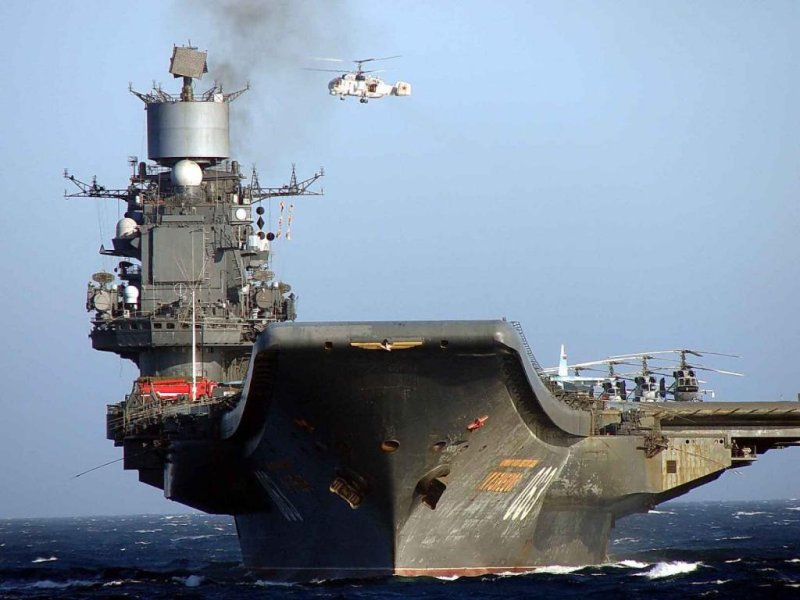The Russian aircraft carrier, the Admiral Kuznetsov, is the flagship of the Russian navy. It left the port of Severomorsk in the Barents Sea on Oct. 15 accompanied by seven other battleships, en route to Syria. The ships were to pass through the Strait of Gibraltar on Wednesday and enter the eastern Mediterranean, where they were to refuel at the Spanish port city of Ceuta, on the coast of North Africa. Photo courtesy the Russian Ministry of Defense.
MADRID, Oct. 26 (UPI) -- Russia has withdrawn its request for its battleships to refuel in the Spanish city of Ceuta today, Russian and Spanish officials said Wednesday.
Russian news agency Tass reported it received a statement from Spain's Ministry of Foreign Affairs saying Russia had "withdrawn its request" for the ships to enter Ceuta. The Russian Embassy confirmed the announcement.
Spain was under pressure from officials in Europe to refuse the initial request by Russia to allow its warships to refuel at the Spanish port, with concerns the ships were headed for Aleppo, Syria.
A former British minister of defense, Sir Gerald Howarth, called it "wholly inappropriate" for a member of NATO to refuel Russian warships on their way to Syria.
"There are sanctions against Russia and it's an extraordinary thing for a NATO ally to do," Lord Alan West, a former head of Britain's Royal Navy, said.
Jens Stoltenberg, NATO's secretary general, said Tuesday it is for "each nation to decide" whether to help supply and refuel Russian ships on their way to the eastern Mediterranean.
"But at the same time we are concerned," he said, "and I have expressed that very clearly, about the potential use of this battle group to increase Russia's ability and to be a platform for air strikes against Syria."
Last week, Spain signed on to an EU statement accusing Russia of war crimes in Aleppo, where it is participating in bombings in support of Syrian President Bashar al-Assad and to free the city from the grasp of Islamist militants, including the Islamic State.
The battle group is led by Russia's aircraft carrier, the Admiral Kuznetsov, accompanied by seven other ships. Spain said that only the smaller ships, and not the Kuznetsov, were scheduled to dock in Ceuta.
The Russian battleship group departed from Severomorsk, Russia, in the Barents Sea on Oct. 15, and passed through the English Channel on Oct. 21. It is expected to enter the Mediterranean Sea on Wednesday, passing through the Strait of Gibraltar in between Spain and Morocco.
Russia described the scheduled refueling stop in Ceuta as routine.
"As long as the Spanish government hasn't banned it, it is a commercial matter like any other vessel stopping to take on supplies, even if it concerns military ships," said Lt. Gen. Evgeny Buzhinsky, who managed Russia's relationship with NATO as a former head of the international treaty department for the Russian Ministry of Defense.
On Wednesday, the Russian Embassy in Spain told Tass that the goal of the voyage is "to ensure naval presence in the important areas of the World Ocean."















